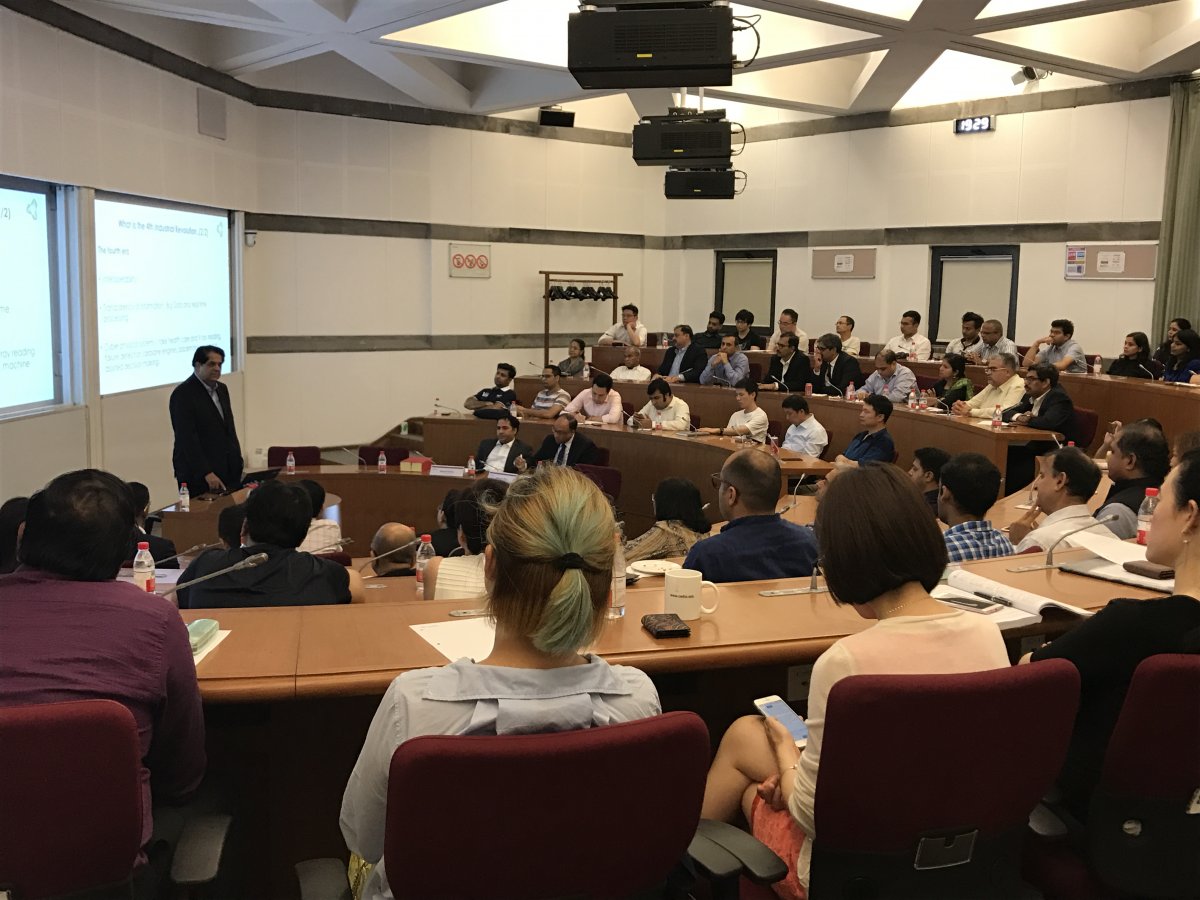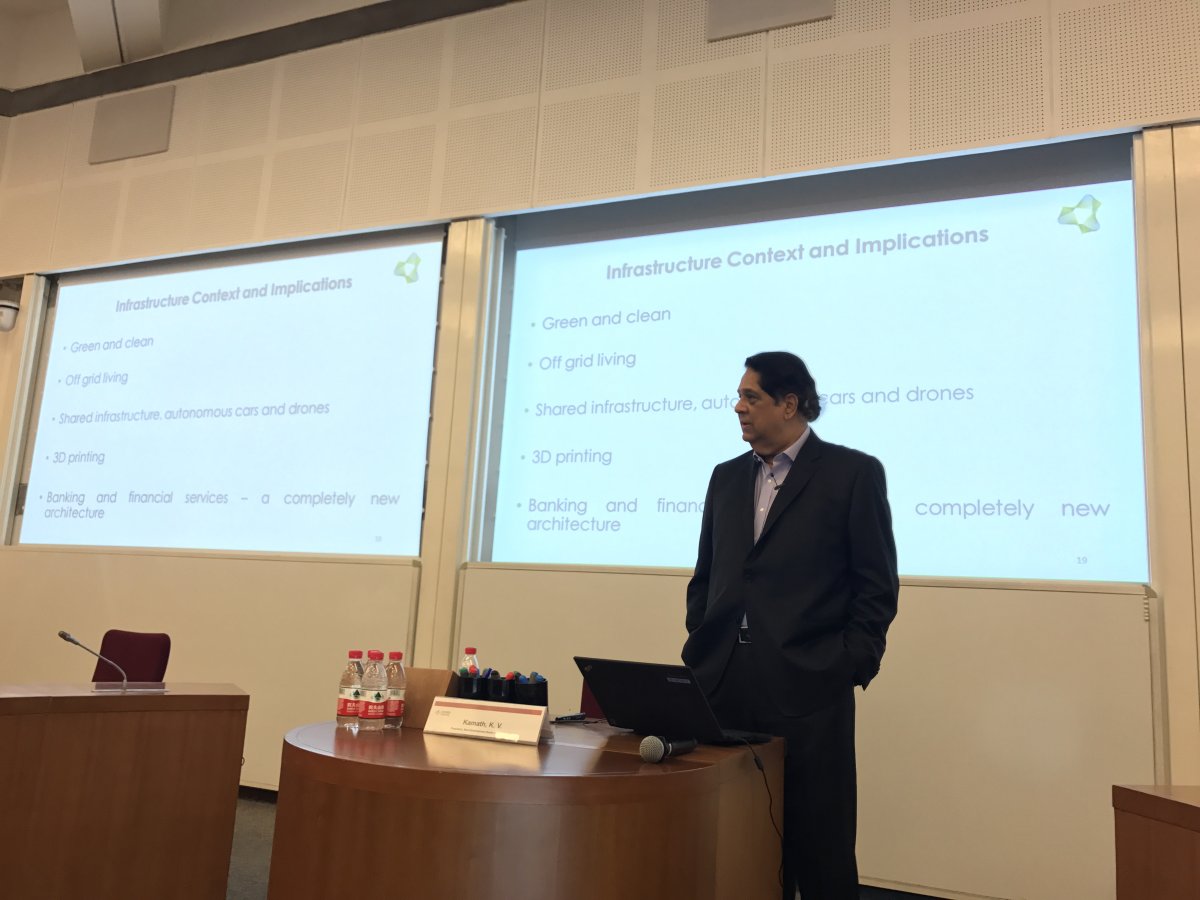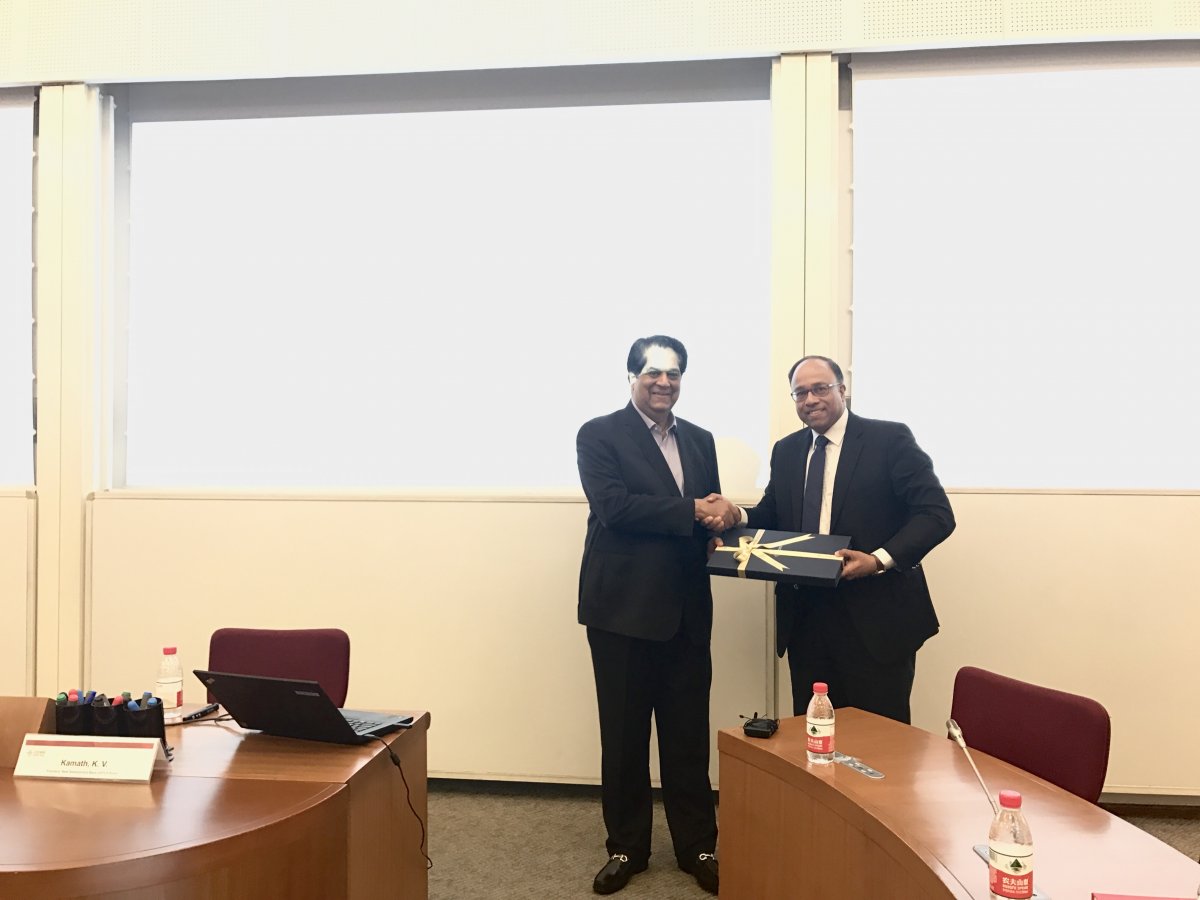New Development Bank President Looks at Industrial Revolution During CEIBS Lecture
July 4, 2018 – The 4th Industrial Revolution is again reshaping the world economy, as did the three before that occurred respectively in the 18th, early and mid-20th centuries, bringing life-changing “disruptions” such as the steam engine, electricity and computers. Today, a variety of technologies are not just emerging but also converging to create a totally new ecosystem, blurring the lines between physical, digital and biological. Tonight, at an Executive Forum co-organised by CEIBS and the Indian Association, Mr. K. V. Kamath, President of the New Development Bank (informally referred to as the BRICS Development Bank) shared his insights on the topic “4th Industrial Revolution and Beyond”.
Mr. Kamath opened his presentation by highlighting how increased mobile internet speed from 2.4KBps to 500MBps (now available with 5G) and reduced data cost in India had boosted the number of internet users in the country. He noted that the lower cost of accessing the internet, coupled with the availability of mobile internet was the biggest driver behind the rapid pace of change being seen during the 4th Industrial Revolution.
The current Industrial Revolution is all about interoperability, information transparency, and cyber physical systems, noted Mr. Kamath. Based on these characteristics, he added, technologies such as AI, cloud computing, blockchain, nano-processing and Internet of Things (IoT) had played a major role in the Revolution’s impact on the larger economic and business landscapes. “Today it’s digital that drives disruptions in every industry,” emphasised the banking industry veteran. Citing video streaming platform Netflix’s role in the demise of video rental chain Blockbuster’s demise, he added, “Only those who dare to embrace new mind-sets will have a chance to survive.”
Mr. Kamath then gave details on opportunities and challenges that may arise after new technologies such as IoT, VR/AR, blockchain, and machine learning are introduced in different fields.
The business guru concluded his speech with an analysis of the role developing economies can play and how they can leverage the rise of the 4th Industrial Revolution. “China, India, and Africa will keep driving global growth”, given that “huge unmet development needs exist in these countries’ economic context,” he said. “That provides an opportunity [for them] to leap-frog [ahead of others].”
The event, moderated by CEIBS Professor of Entrepreneurship Ramakrishna Velamuri, was attended by the school’s students, alumni, staff, and some members of the Shanghai-based Indian business community.















